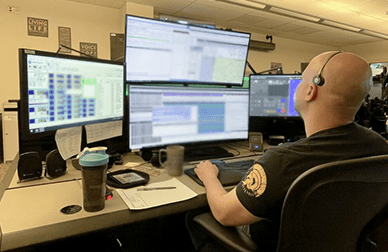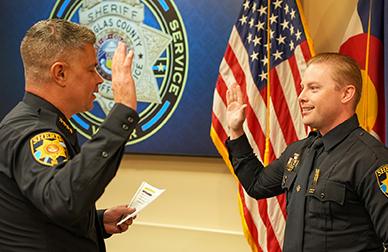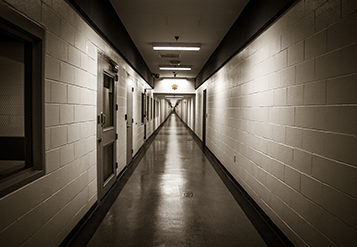How to Help Your Teen
How Youth May React To The Crime -
The first step in helping youth is to recognize the common and varied reactions they might have. Some of these reactions might include:
- Changes in eating or sleeping habits
- Acting out: aggressive or inappropriate behavior
- Mood swings
- Attention-seeking behavior
- Increased risk-taking
- Difficulty concentrating
- School absences or fear of attending school
- Declining school performance
- Poor peer relations, withdrawal
- Physical signs of stress: headache, stomachache
- Nightmares or insomnia
- Anger
- Hopelessness
- Helplessness, loss of control, or powerlessness
- Clinginess
- Anxiety
- Depression
Rapid behavior changes can be indicators of victimization and trauma. Although keeping a child’s victimization quiet or trying to forget about it can be an instinctive response, a victim has little chance of healing from the experience if they want to talk about it with someone and can’t. Forcing a person to suppress feelings and memories can damage a person’s emotional, psychological, and even physical health.
Why it may be hard for teens to talk about their victimization
Youth who have been affected by crime may tell trusted friends about the victimization, but they often avoid or delay in telling adults about such experiences. Teens are at a unique developmental stage when physical, psychological, emotional, cognitive, and social changes have a significant impact on their ability to seek help when they are victimized. Some of these reasons include:
- Fear of consequences: Youth may believe that disclosing victimization will only make things worse. Some youth may believe that the abuser will retaliate against them or their family. Also, some youth may believe that parents will punish them if something was lost or damaged in the victimization.
- Shame: Fear of others’ reactions is a leading reason that youth delay in getting help. Youth victims may sometimes feel responsible for not preventing their victimization and think others will blame them too.
- Trust issues: Many forms of youth victimization include a violation of trust. Youth victims may think that adults won’t believe them or won’t understand what they have been through.
- Lack of awareness: Youth victims may not be aware that a crime has occurred or that anyone can help.
- Desire for privacy: During adolescence, the need for privacy becomes increasingly important. Victims may feel ashamed to have people know the details of their victimization.
- Need for independence: Adolescents struggle for autonomy during this time in their development. They may feel the need to resolve their problems on their own without involving an adult. Youth victims may fear that adults will take over and they will lose control and decision-making power in the situation. Youth may also worry that adults’ efforts to protect them will result in a loss of privileges or freedom.
How Parents Can Help -
Recognize What Youth Need
- Safety – Youth need to know what adults can do to help them be safe in order to be protected from further victimization.
- Support – Youth need to know they are not alone after victimization. Let them know that there are people to support them from family, friends, or professional helpers who will listen, understand, support, encourage, and care.
- Non-pressuring environment – Youth need time to build rapport and trust with adults. Sharing details about victimization is often a gradual process. Youth need reassurance that adults are ready to listen when they are ready to communicate.
- Information – Youth need age-appropriate information about types of crimes against youth, normal reactions to trauma, how to heal, and victims’ rights and choices after victimization is disclosed.
- Privacy – Youth need adults to respect their privacy concerns, but also provide honest information about mandated reporting of certain crimes against youth and what to expect when authorities are notified.
- Respect and empowerment – Youth need to know that adults will listen to them, hear their concerns, help weigh their options, and support them through their choices after the crime.
- Hope – Like all victims of crime, youth victims need hope that they can recover from their victimization and rebuild their lives.
What you can do
You can play an important role in reducing your teen’s worries and assisting them in getting additional help.
Create a supportive environment
- Help your teen pull together their support systems such as friends, relatives, teachers, coaches, etc.
- Let your teen know that you are willing to listen to them.
- Tell your teen you are glad they told you about their victimization.
Focus on your teen’s needs
- Give your teen time to process what happened.
- Ask your teen how you can help.
Reserve judgment:
- Avoid criticizing, second-guessing, or shaming your teen. It is NEVER okay for one person to harm another.
Remain calm and supportive in front of your teen:
- Your teen will be aware of and affected by your reactions.
Respect teens’ perspectives on the crime:
- Let your teen vent,
- You do not have to have the answers for everything.
- Validate and acknowledge your teen’s feelings about what happened.
- Explore options for addressing the situation with your child and contact Victim Assistance.




